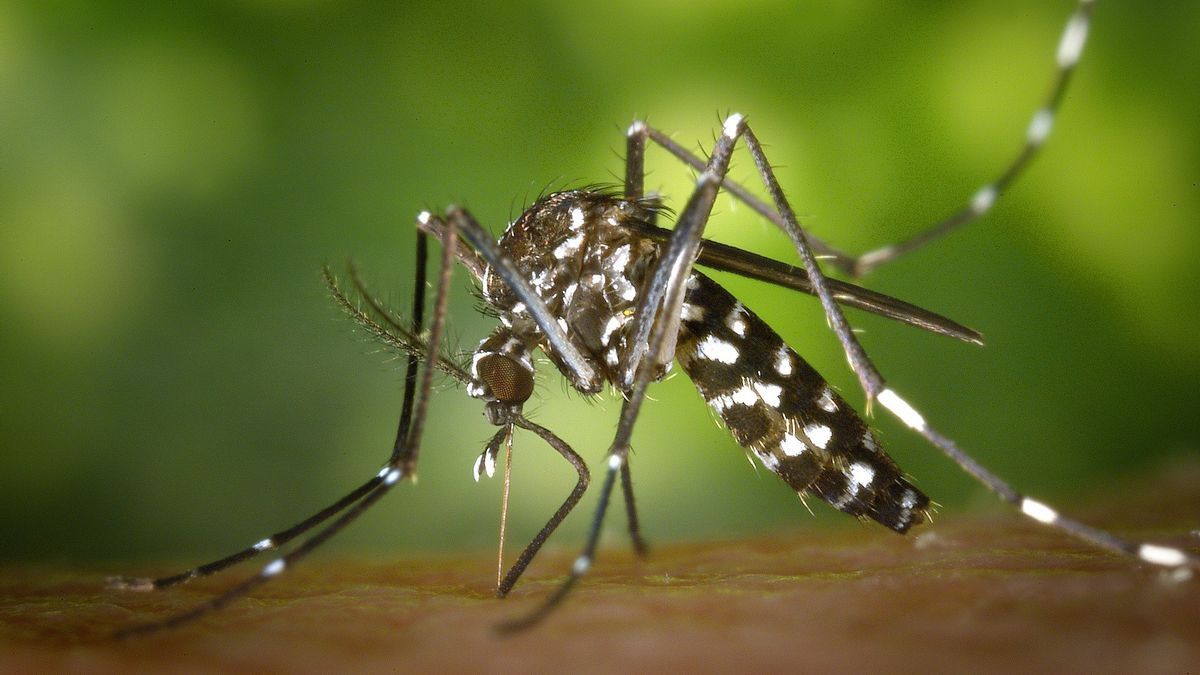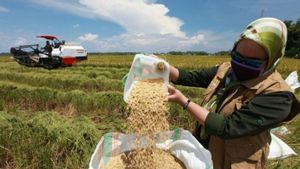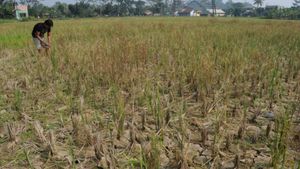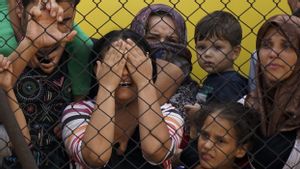JAKARTA - The Indonesian Ministry of Health appealed to the public to be aware of a number of diseases caused by mosquito bites in the midst of the increasing hot weather in Indonesia.
"There is a study of dengue fever mosquitoes, with the current increase in the earth's temperature, the hotter the temperature, the more actively they bite. It could be because they are hungry," said Director of Prevention and Control of Infectious Diseases at the Indonesian Ministry of Health, Imran Pambudi, quoted by ANTARA, Tuesday, May 2.
Similar conditions apply to female malaria (Anopheles) mosquitoes, which generally appear from 18.00 to 06.00.
According to Imran, there are five types of malaria that have the potential to trigger complications that lead to death, if they are late for medical treatment.
The first is falsiparum malaria. Caused by the falciparum Plasmodium which can develop into malaria with complications that cause death.
The second is the vivax malaria caused by plasmodium vivax which can cause chronic anemia and can also develop into malaria with complications.
The third is ovale malaria caused by plasmodium ovale. Clinical manifestations of that type are mild.
The fourth is malaria malaria caused by plasmodium malaria which is also mild symptomatic.
Fifth, malaria knowledge is caused by plasmodium knowledgeles which can develop into malaria with complications.
"The common symptoms that arise are fever, chills accompanied by vomiting, headache, muscle aches, sore sore," said Imran.
"People who have suffered from malaria, sore to headaches, usually see that person imagines and is mired, it's because it's so dangerous," he said.
If malaria attacks pregnant women, said Imran, it can cause anemia so that babies in the womb lack oxygen. This situation has the potential to make babies small with a weight below 2 kg.
"This condition is prone to the death of a newborn," he said.
Malaria is an infectious disease caused by a living plasmodium parasite that reproduces in human red blood cells through the bite of a female malaria mosquito (Anopheles).
According to Imran, malaria can attack everyone including men or women and in all groups of infants, children, or adults.
"Other typical products, if he bites it, are nungging positions. Generally in swamps, lagoons, river estuaries and others," he said.
Efforts to control malaria that can be done by the community include cleaning the environment, launching waterways so as not to be inundated, drying inundated water, cleaning moss in springs and lakes.
In addition, malaria can also be anticipated by reducing the population of mosquitoes through the spread of larvae-eating fish seeds, such as tinhead fish, red tilapia, gupi, mujair and others in the song, rivers, ponds and other inundated water.
"We can also spread larvae/tunic poison, plant mosquito expulsion plants such as kecombrang, sereh,zodia, lavender, marigold," he said.
また読む:
Avoiding the bite of a malaria mosquito can be done by sleeping using mosquito nets, using anti-vortex drugs, installing kasal wires on a wind hole/home ventilation, keeping the livestock cages away from the house, using an oles anti-drug drug (repelen).
"If you leave the house at night, you are advised to wear clothes that can cover your body such as trousers, long-handed clothes, gloves and others," he said.
The English, Chinese, Japanese, Arabic, and French versions are automatically generated by the AI. So there may still be inaccuracies in translating, please always see Indonesian as our main language. (system supported by DigitalSiber.id)


















